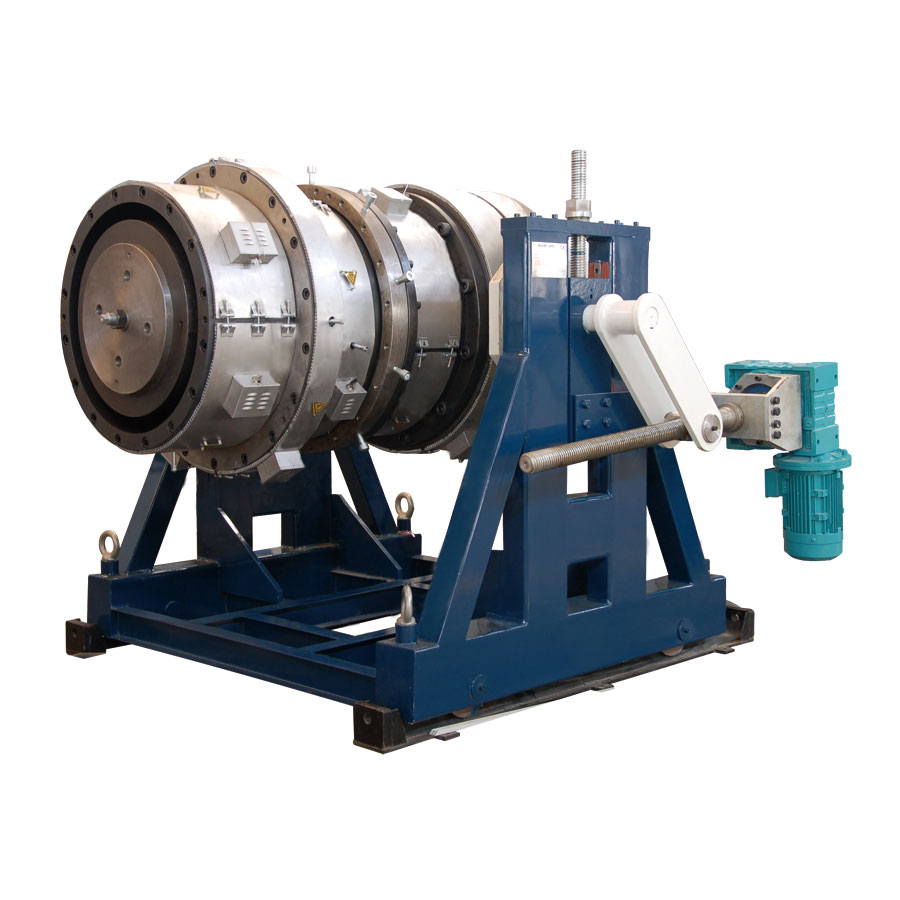- English
- Español
- Português
- русский
- Français
- 日本語
- Deutsch
- tiếng Việt
- Italiano
- Nederlands
- ภาษาไทย
- Polski
- 한국어
- Svenska
- magyar
- Malay
- বাংলা ভাষার
- Dansk
- Suomi
- हिन्दी
- Pilipino
- Türkçe
- Gaeilge
- العربية
- Indonesia
- Norsk
- تمل
- český
- ελληνικά
- український
- Javanese
- فارسی
- தமிழ்
- తెలుగు
- नेपाली
- Burmese
- български
- ລາວ
- Latine
- Қазақша
- Euskal
- Azərbaycan
- Slovenský jazyk
- Македонски
- Lietuvos
- Eesti Keel
- Română
- Slovenski
- मराठी
- Srpski језик
How to effective use Low Price Spiral Die-head
2025-04-08
To effectively use a Low Price Spiral Die-Head, especially in plastic pipe or tubing extrusion, you’ll need to focus on setup precision, maintenance, and process optimization—since low-cost versions may have tighter margins for error.
Here’s a practical guide:
✅ How to Effectively Use a Low Price Spiral Die-Head
1. Proper Machine Setup
Align the die-head carefully with the extruder to avoid off-center flow or uneven wall thickness.
Centering tools or lasers help ensure perfect alignment, which is crucial for uniform extrusion.
2. Temperature Control
Use accurate heaters and temperature controllers around the die-head.
Monitor zones independently: a cheaper die may have fewer zones, so stable control is essential.
Avoid overheating to prevent polymer degradation or material burning.
3. Material Feeding
Use high-quality, well-dried plastic pellets (e.g., PE, PVC).
Impurities or moisture can cause blockages, especially in budget die-heads with tighter internal channels.
4. Flow Rate Adjustment
Start with low extrusion speed to ensure even flow distribution in the spiral channels.
Gradually increase speed while watching for defects (e.g., thickness variation, rough surface).
Low-cost dies may not handle high throughput as well as premium models.
5. Regular Cleaning and Maintenance
After each use or production cycle, clean the die-head thoroughly:
Use soft tools to avoid scratching internal flow channels.
Avoid carbon buildup from burnt plastic.
Periodically disassemble the die-head (if designed for it) to clean internal spiral grooves.
6. Monitor Output Quality
Constantly check for:
Wall thickness uniformity
Surface finish
Diameter consistency
Adjust temperature, speed, and pressure as needed.
7. Lubrication and Handling
Apply high-temp grease to moving/connecting parts (where applicable).
Handle gently to avoid damaging alignment pins or sealing surfaces, which may be lower-quality in budget models.
Pro Tips:
Consider retrofitting with better heaters or PID controllers if control is inconsistent.
Use die centering bolts (if included) to tweak alignment during operation.
Always record settings that produce good results—budget dies are less forgiving, so repeatability matters.




